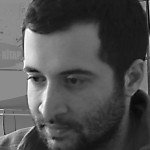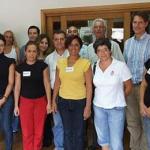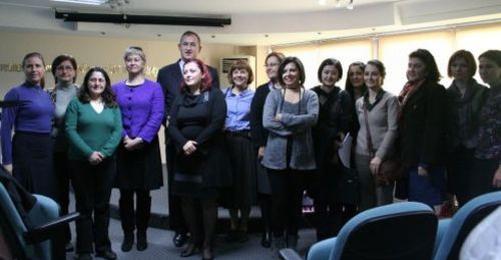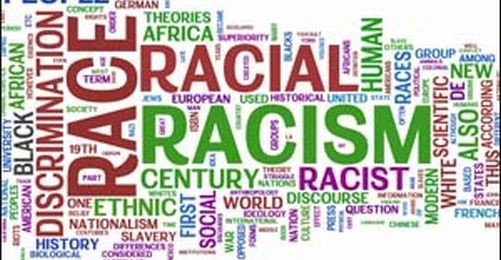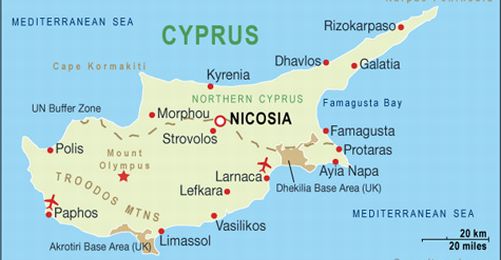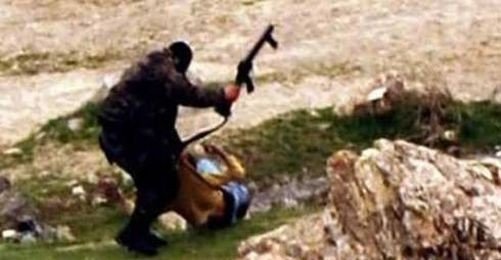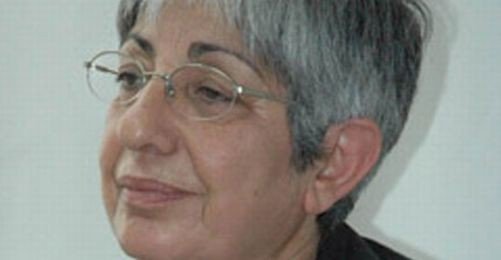The representatives of the non-governmental organizations, who attended the seminar, criticized the media. "The national media is overlooking us, while the local media is just cutting and pasting our statements," said the representatives.
At the end of the training, which aimed to help the rights organizations to have their voices heard through the media, the participants agreed that they can improve both the communications within their organizations and the communication towards the public, and that they can better take advantage of the media as a means of communications.
A total of 44 NGO representatives from Diyarbakir, Siirt, Adiyaman, Sanliurfa, Gaziantep, Batman, Van, Mardin, Mus, Elazig and Malatya attended the two-day training.
Associate Professor Doctor Gulgun Tosun from the Communications Department of Ege University, Communications expert Ergun Gumrah from Leo PR, NGO expert Sinan Gokcen from the Helsinki Citizens Assembly and Erol Onderoglu, who is responsible for the BIA ² Media Monitoring Desk, made presentations at the seminar. The number of women participants was quite high.
Tosun: "Rights organizations intervene in the state's range of power "
Associate Professor Dr. Tosun, who made the first presentation on Saturday, focused on the notion of rights organizations; she gave examples of rights advocating from around the world and talked about public relations practices.
Tosun described NGOs as "institutions that organize outside the state's range of power." "If you don't express yourselves better, the journalists will continue to use traditional methods and represent you insufficiently," warned Tosun.
She underlined that human rights advocating is a direct intervention in the state's range of power. "This characteristic separates human rights organizations from cultural and economic organizations and organizations that advocate for similar rights," said Tosun.
Tosun added that better communications with the members would strengthen the rights organizations and enhance their effectiveness. "Collectively determine your organization's strengths and weaknesses and decide on how you would like to look," she said. "Then come up with a strategy to reach your goal."
Tosun said the rights organizations could create their own media and underlined that especially the Internet provides for a cheap and accessible alternative.
NGO cooperation is necessary
Tosun asked the NGO representatives in the room why they think their organization is different. Following this question there was a brief argument between the representatives of Solidarity Association for the Oppressed ad Human Rights (Mazlum-Der) and Human Rights Association (IHD).
IHD representatives argued they advocate global values; Mazlum-Der representatives said although the name of their organization is usually heard in association with the headscarf issue, they react to other problems too.
By the end of the meeting, they had reconciled and all participants agreed that organizations working in similar fields should cooperate.
Gumrah: "There is a need to think strategically"
Communications expert Ergun Gumrah, picked up from where Tosun left and underlined that the rights organizations have to plan their communications process in detail to be able to correctly convey their message and to create an effect.
"The most important strength of the rights organizations is the fact that they are on the side of the rightful and the correct," said Gumrah. He talked about the importance of establishing transparency within the organizations, besides the communications directed to the public, and the importance of efficiency towards the members.
Gumrah said that hundreds of thousands of messages are created each day and highlighted the importance of differentiating oneself in the present complex communications medium. He called on rights organizations to spend more efforts to come up with creative communications solutions.
Gumrah added that the rights organizations must correctly determine their target audiance. "Being on the media is not the target, it is just the means," he said.
"Everything we do to reach our target from the point we are at now make up our strategy," said Gumrah. He said research; planning, implementation and evaluation are necessary for the activities to be successful.
Harsh reaction against the media
A discussion started after Gumrah said the journalists working especially for the national media are indifferent to rights but added that nevertheless the rights organizations need them. The discussion revealed the harshness of the participants' reaction against the media.
The participants argued that the fact that the efforts or rights organizations are misrepresented in the media is a result of a choice rather than a communications mistake by them. They said the media is preparing news on the axis of the state and their patrons by giving examples.
Gumrah agreed with the participants and added that realizing this fact is important in creating strategies to use the media as a means.
Gokcen: "Establish relations with the journalists "
NGO expert Sinan Gokcen from the Helsinki Citizens Assembly talked about the methods the rights organizations should pay attention to when using communications vehicles.
Gokcen gave detailed tips on press conferences, press statements, news writing and interviewing. He argued that the media avoids investing in journalists and added that columnists, who write six days a week, have taken up the function of the journalists. He said it is very important for rights organizations to have systematic exchange of information with the journalists that are interested in their fields.
"The most powerful thing that motivates the journalist is the news itself," said Gokcen. He said it is very important that rights organizations do planning to be able to correctly and effectively convey their messages. Gokcen and Gumrah underlined that, despite all its negative practices, the media is still the most effective means to create public opinion and stressed that the rights organizations must learn to take advantage of this means.
The experts, who worked as journalists for many years, said it is out of question for rights organizations, who need to take advantage of every single channel to reach the public, to to angry with the media or to see journalists as enemies.
The first day ended with Gokcen's presentation followed by a dinner attended by all participants and instructors.
Onderoglu: "Reporting is very important"
On Sunday, Erol Onderoglu, who is responsible for BIA² Media Monitoring Desk, initiated a discussion on what the rights organizations should pay attention to when preparing their reports.
Onderoglu gave examples of the reporting methods of the Reporters Without Frontiers (RSF) for which he works. He underlined the importance of giving sources and differentiating between allegations and realities.
"Using allegations and witness accounts as evidence we acquired first hand would damage the trustworthiness of our organization and our report," said Onderoglu. "Positive or negative formal data and formal statements and reactions should also be in the report."
"You should take advantage of the Law to Acquire Information"
Onderoglu advised to always demand information from public institutions and gave information on the Law to Acquire Information, which went into effect on April 2004.
Onderoglu said that the state institutions are still not prepared enough considering the law. The participants agreed with Onderoglu adding that they received inadequate responses or sometimes no response for their applications.
Onderoglu and Gokcen reminded the participants that despite all these, the law is a very important legal weapon and called on the representatives of rights organizations to take advantage of this right.
Criticisms and suggestions
At the end of the training, it was the participants' turn to speak. They conveyed their criticisms and suggestions. All participants agreed that the training was very beneficial and said they would share the things they learned with their companies and try to implement them.
The main criticisms were that the training was too short, there was not enough practical exercises and that technical problems interrupted the training. All representatives said they would like such trainings to continue.
Halit Ates from the Education and Science Workers' Union (Egitim-Sen), said more thought should be put into how to overcome the cultural differences that exist within the organizations.
"Regional difficulties should be taken into consideration"
Ihsan Babaoglu, the Diyarbakir Branch head of Egitim-Sen said the rights organizations working especially in the region are intervening in the state's taboos.
Babaoglu said that the media is prejudiced and added that more time should be spent on talking on how this prejudice can be overcome. He said there should be additions to the trainings taking into consideration the different problems of different regions.
Another criticism was that men "as usual" talked too much.
BIA² coordinator Ertugrul Kurkcu, who made the closing speech, said that with this training, the ones on the other side of the communication line were involved in the process.
Kurkcu underlined that the process is not one-sided. "Embrace this process and demand the things you need," advised Kurkcu. "We, who as opposed to national media, are trying to get the voice of the ordinary people heard, will do our best to help." (EU/EA/YE)




